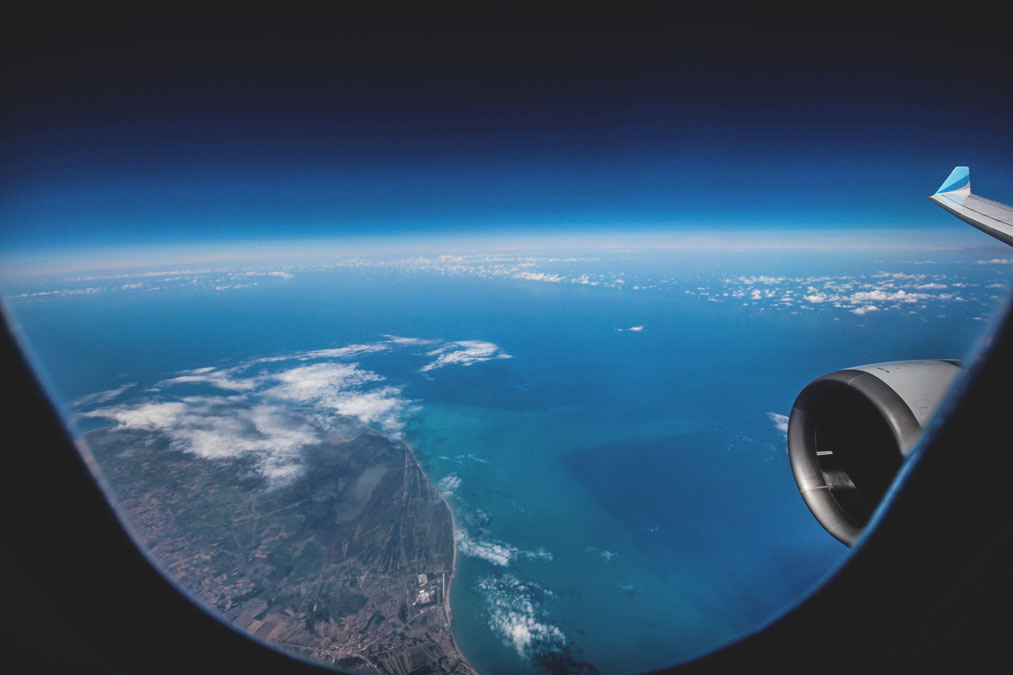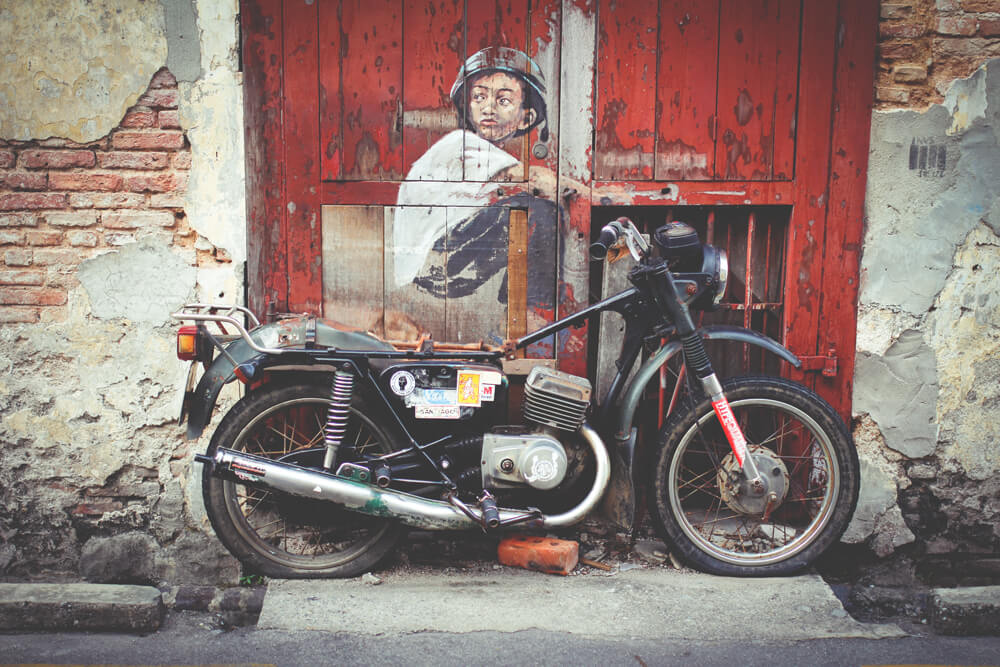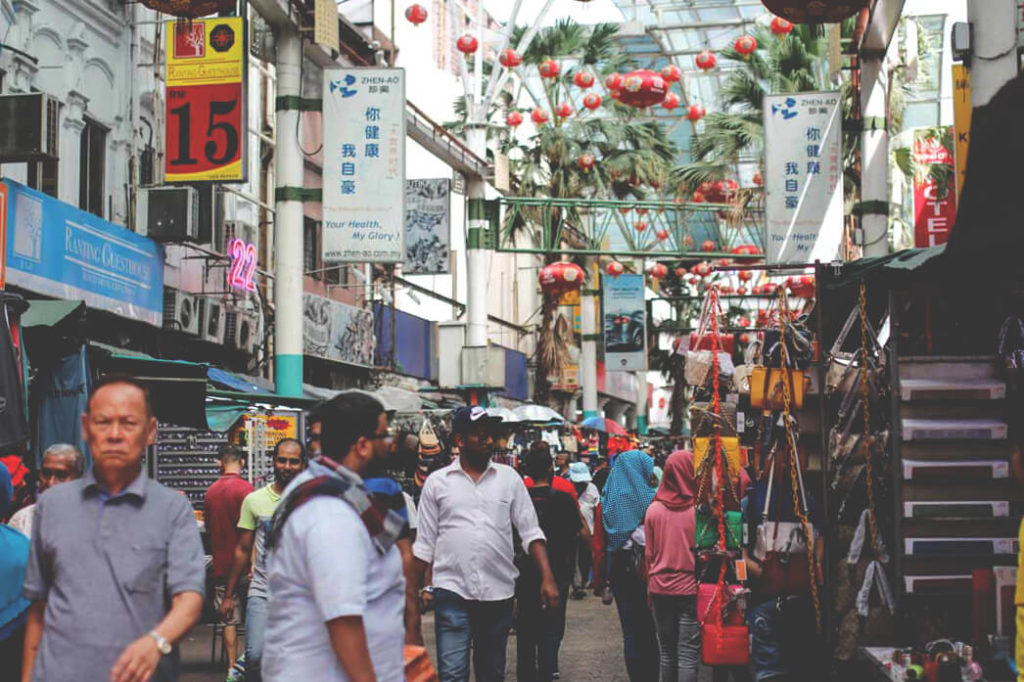Malaysia is a true dream destination – tropical islands, fascinating cultures, and cuisine that will make your mouth water. Before you embark on your adventure, however, there are a few things you should know about entering Malaysia. What documents do you need? How long can you stay? Do you need a visa? Don’t worry, we’ve summarized all the important information for you to ensure your start in Malaysia is stress-free and relaxed.
- Entering Malaysia without a visa
- Electronic registration
- Entering by land
- Entering Malaysia – extending your stay
- Return and onward travel tickets
- Embassies & Consulates in Germany
- Import & Customs
- Medical Care
- Health Regulations
- International Health Insurance
- Travel Reading
Entering Malaysia without a Visa
You do not need to apply for a visa in advance to enter Malaysia. If your passport is valid for at least six months beyond your planned return date and has three blank pages, you will generally receive a residence permit for a maximum of 90 days (Single Entry Visa). It is important that your passport is not damaged, as in the past there have been repeated discussions at the border, even leading to complete refusal of entry.
If you travel to Sabah or Sarawak on Borneo, you will receive a separate visa, which is normally valid for 90 days. Here, too, you should ensure that the appropriate stamp is present in your passport, as a missing one can cause problems during police checks. Important for you: Temporary passports are not accepted in Malaysia.
Electronic Registration
Since December 2025, you must register electronically using the Malaysia Digital Arrival Card (MDAC) within three days of entering Malaysia. If you’re entering Kuala Lumpur via KLIA1 or KLIA2 airports, you can pre-register as a citizen of certain countries, including Germany, to use the E-Gate/Autogate. This often saves you long waits at passport control, and you can use it from the first time you enter the country.
You’ll also need to show your boarding pass at passport control. The Malaysian immigration authorities may also ask for your return or onward ticket and proof of accommodation. Very important: Make sure you get an entry stamp in your passport, otherwise, you may encounter problems upon departure due to unclear length of stay.
Since June 1, 2011, fingerprints of all foreign nationals have been taken upon entry. A photo will also be taken (at least that’s how it always was for us in Kuala Lumpur). Exceptions apply to children under 12 years of age. On the plane or at the airport, you will also receive an Arrival and Departure Card. These must be completed in full. Keep the lower section of the entry card safe. You will need it for leaving the country.
The most important information for you:
- Valid passport (valid for at least six months beyond your return date)
- Return or onward ticket to show that you will be leaving the country again.
- Proof of sufficient financial resources (rarely checked)
- Register electronically before entry using the Malaysia Digital Arrival Card (MDAC)
- Make sure you have the entry stamp in your passport!
- Keep the lower section of the entry card safe. You’ll need it for departure.

Entering by Land
You also have the option of entering Malaysia by land. There are four border countries: Thailand, Singapore, Indonesia, and Brunei. Here, too, you’ll receive an Arrival and Departure Card, which you must fill out. You will then receive your 90-day residence permit.
Ensure your passport is valid for at least six months beyond your planned departure date. Upon entry, a stamp will be placed in your passport indicating the length of stay. Make sure this stamp is present to avoid problems upon departure.
Even if you are entering by land, you should register electronically via the MDAC within three days of entry. This applies to all entrants, regardless of the point of entry. In addition, the Malaysian authorities may require presentation of a return or onward travel ticket and proof of booked accommodation.

Entry into Malaysia – Extending Your Stay
Once the 90 days have expired, you must leave the country in any case. You should also adhere to these rules. Overstaying is not a trivial offense in Malaysia either. For a longer stay, you should contact the embassy in Berlin. There is currently no official way to extend the 90 days. In addition, a so-called “visa run” (leaving a neighboring country and then re-entering) is no longer viewed favorably by the authorities these days.
So if you leave the country and then re-enter a few days later, expect your entry to be refused. However, if you are traveling through several countries on vacation and then re-entering Malaysia, it shouldn’t be a problem. For long-term stays, you should allow some time to pass between entries.
Alternative options for longer stays:
- Malaysia My Second Home (MM2H): This program allows foreigners to live in Malaysia long-term under certain conditions.
- Work permit: If you want to work in Malaysia, you will need a corresponding work visa. This must be applied for before entering the country.

Return and onward travel tickets
Generally, you may be asked to present your return or onward ticket and proof of booked accommodation upon entry. In our case, they didn’t want to see either. However, according to the Ministry of Home Affairs in Malaysia, you must be able to provide proof of your exit.
Some airlines check this at check-in. If you don’t have proof, you may be denied boarding. Immigration authorities may also ask for such a ticket upon arrival in Malaysia. Without appropriate proof, they can then thwart your plans and deny you entry.
No return or onward ticket yet?
- Onward Ticket: There are service providers that will issue you a valid onward ticket for a small fee. This ticket is official and can be presented if necessary (e.g., Onward Ticket or DummyTicket247).
- Cheap Bus Ticket: Book a cheap bus ticket to a neighboring country, e.g., Thailand or Singapore. This can serve as proof of planned departure. This always worked during our trip around the world (e.g. with 12go.com*).
- Accommodation reservation: A booking confirmation for accommodation in a neighboring country can also be helpful to support your travel plans (e.g. with Booking.com*).
- Cancellable tickets: Consider purchasing a cancelable flight ticket. After entering the country, you can cancel this ticket if your plans change.
Embassies & Consulates in Germany
- Embassy of Malaysia
- Consulate General of Malaysia in Hamburg
- Consulate General of Malaysia in Frankfurt
Import & Customs
Like every country, Malaysia also has certain import and customs regulations.
Goods that can be imported duty-free:
- Alcohol: Up to 1 liter of spirits or wine.
- Tobacco products: 200 cigarettes or 50 cigars or 225 grams of tobacco.
- Perfume: A reasonable amount for personal use.
- Gifts: Personal items and gifts up to a total value of 500 MYR (when entering by land or water) or 1,000 MYR (when entering by air).
Prohibited or restricted goods:
- Drugs: The import of drugs is strictly prohibited. Severe penalties await you, and you may even be punished with the death penalty.
- Weapons and ammunition: Require a special permit.
- Pornographic material: Import is prohibited.
- Religiously sensitive material: Items that could be considered offensive to Islam are forbidden.
- Food: The import of milk, dairy products, and meat is prohibited.
Currency:
- Local currency: The import of the Malaysian ringgit is permitted up to an amount of 1,000 MYR.
- Foreign currencies: There are no restrictions, however, amounts over 10,000 USD must be declared.
Other Notes:
- Medicines: If you require special medication, carry a doctor’s certificate in English.
- Species protection: The import of endangered plant and animal species and products made from them is prohibited.

Medical care
Medical care in Malaysia is well developed in urban areas, especially in cities such as Kuala Lumpur, on the island of Penang and Johor Bahru. Here you’ll find numerous hospitals and clinics with modern facilities and well-trained staff. Many doctors trained abroad and speak English, which facilitates communication.
However, medical care can be limited in rural areas, especially on Borneo. Therefore, we recommend carrying a well-stocked first-aid kit when traveling to remote areas and, above all, having valid international health insurance. You can purchase this before your trip for as little as €10 per year.
Health Regulations
No specific vaccinations are required for your trip to Malaysia. Ensure that all standard vaccinations have been completed according to the current vaccination schedule of the Robert Koch Institute.
Standard vaccinations include:
- Tetanus
- Measles
- Diphtheria
- Mumps
- Polio
- Rubella
- Pertussis (whooping cough)
Current report from the Federal Foreign Office: “Due to repeated outbreaks, adequate vaccination against pertussis in particular should be ensured.”
Hepatitis A is also recommended as a travel vaccination for Malaysia, and depending on the type of trip, hepatitis B, Japanese encephalitis, rabies, typhoid, cholera and meningococcus aureus. Especially if you’re planning a trip around the world and will be staying in Asian countries for an extended period, you should discuss this topic with your family doctor or a doctor at a tropical institute.
If you’re only planning a vacation in Malaysia, you probably don’t need any of these vaccinations. However, that’s entirely up to you. You can also find out more about dengue fever, malaria, and chikungunya fever on the Federal Foreign Office website. If you’re entering from a yellow fever area or have been in transit there for more than 12 hours, you must provide proof of yellow fever vaccination if you’re one year old or older.
International Health Insurance
International health insurance is highly recommended when traveling to Malaysia, as it protects you from high costs in the event of illness. While medical care is good in larger cities like Kuala Lumpur or the island of Penang, treatments, especially in private clinics, can quickly become expensive. In addition, statutory health insurance in Germany often does not cover such costs abroad.
There are numerous providers, which are usually concluded for a period of 1 year and a travel period of 6-8 weeks per trip. The benefits are important, so you should compare and check them carefully. International health insurance is available from as little as €10 per year. More information here: The best international health insurance.
Popular providers of international health insurance
- ADAC International Health Insurance
- HanseMerkur Travel Insurance*
- Allianz Travel*
- ERGO Travel Insurance
Very important! International health insurance must be purchased before traveling, otherwise it will not be valid. Keep the policy number and the provider’s emergency number safe in case you need them on site.
Travel Reading
Want to learn more about the country and its people? Then check out the Dumont travel guide. Here you’ll find all the important information about Malaysia on over 400 pages.
- Cover photo Cameron Highlands by bloodua | istock.com